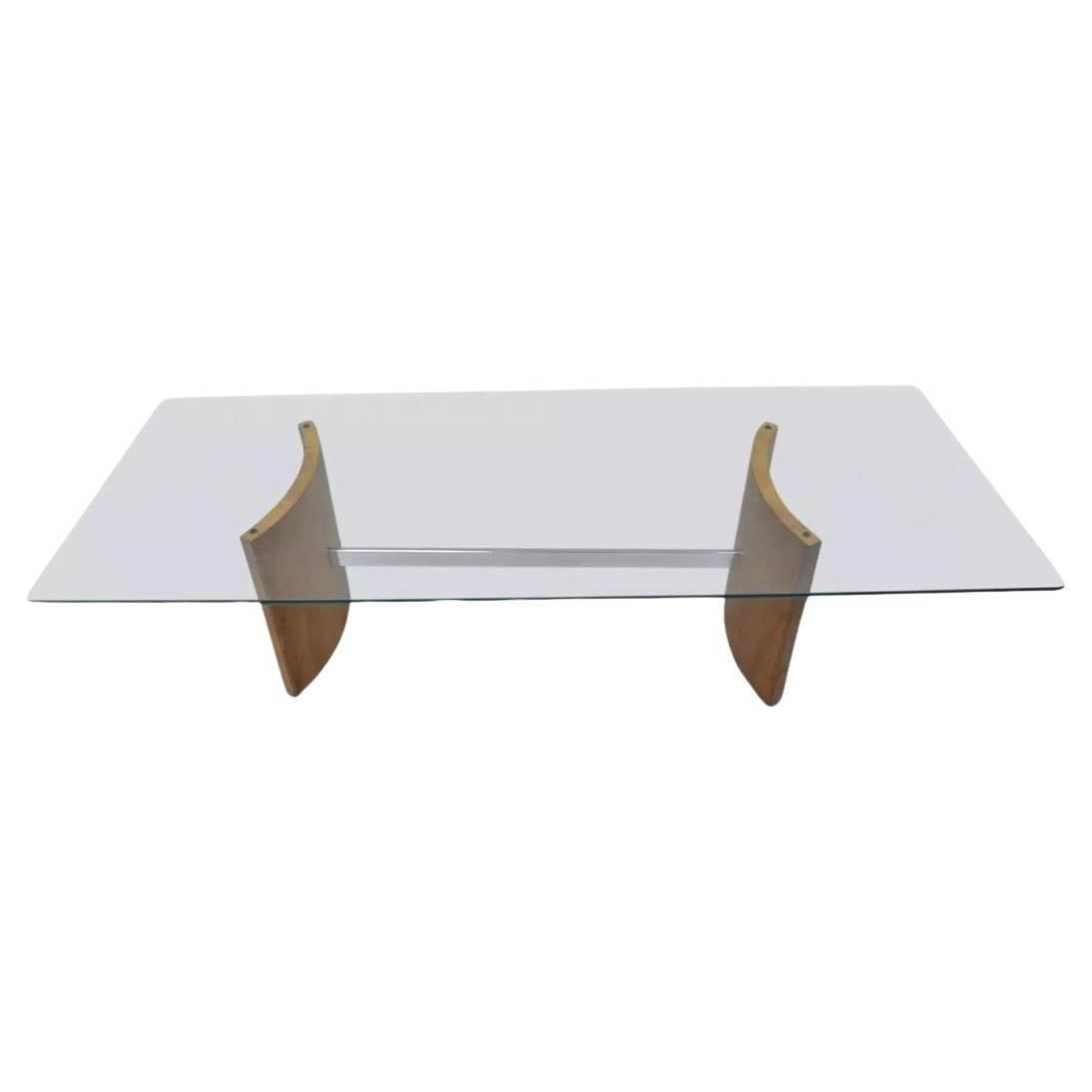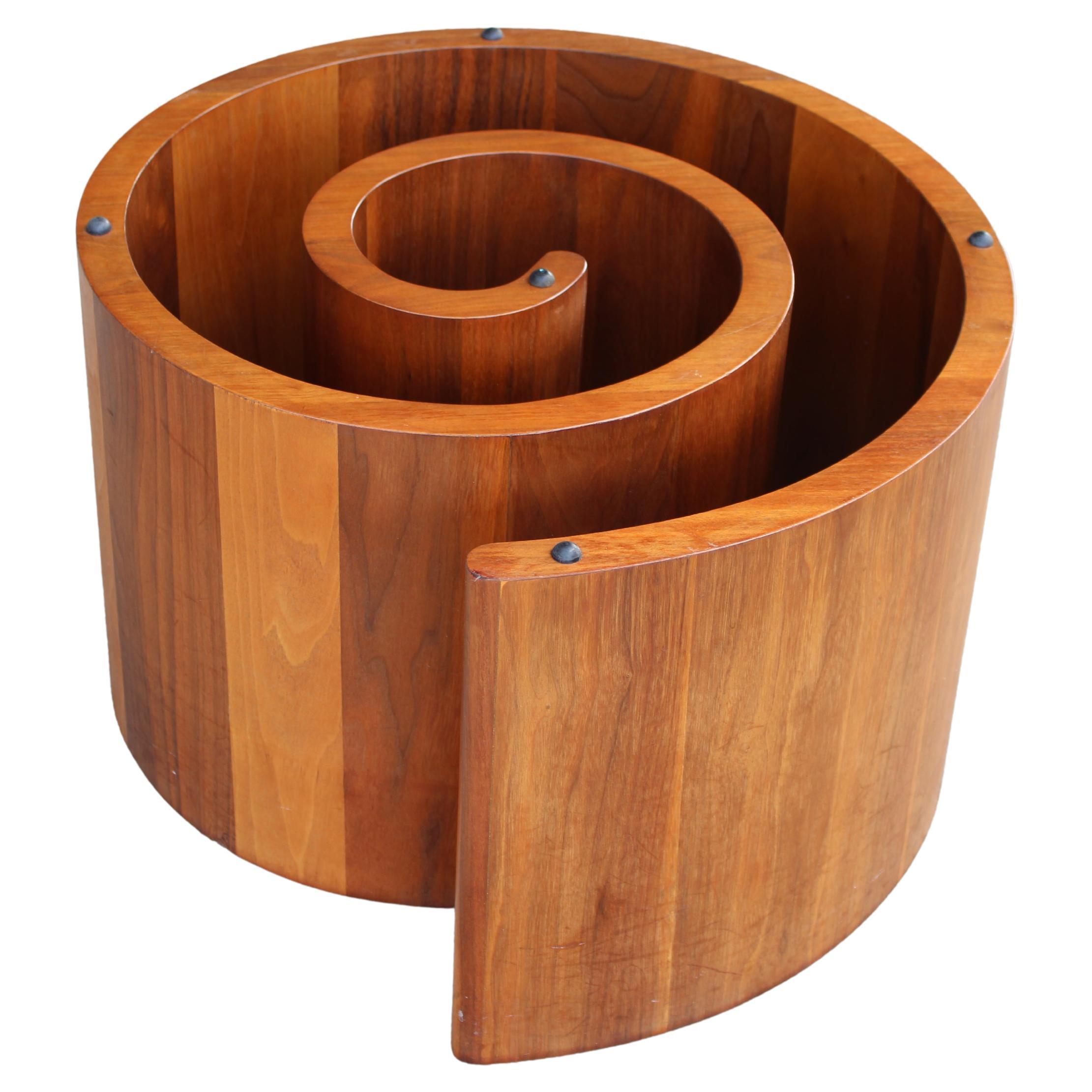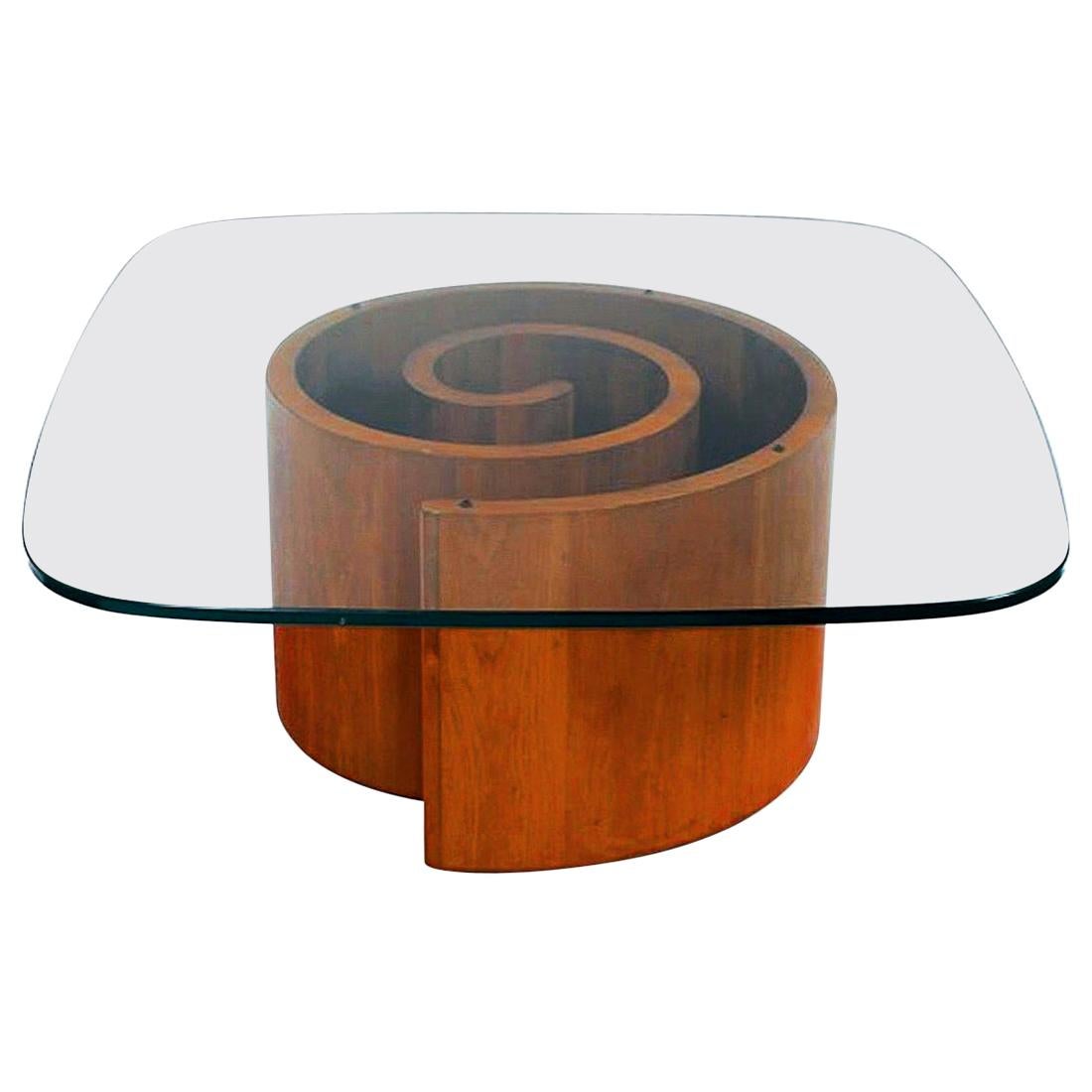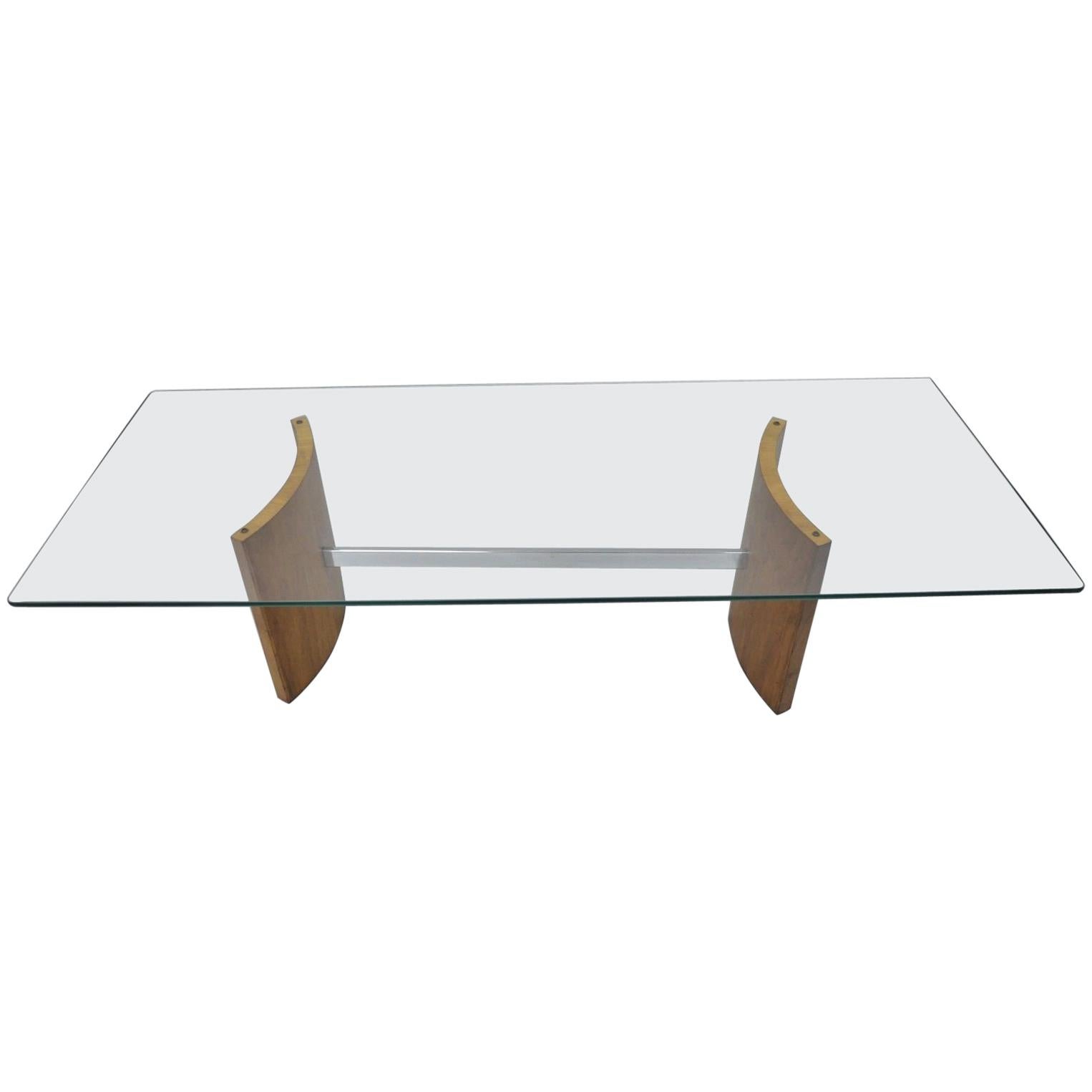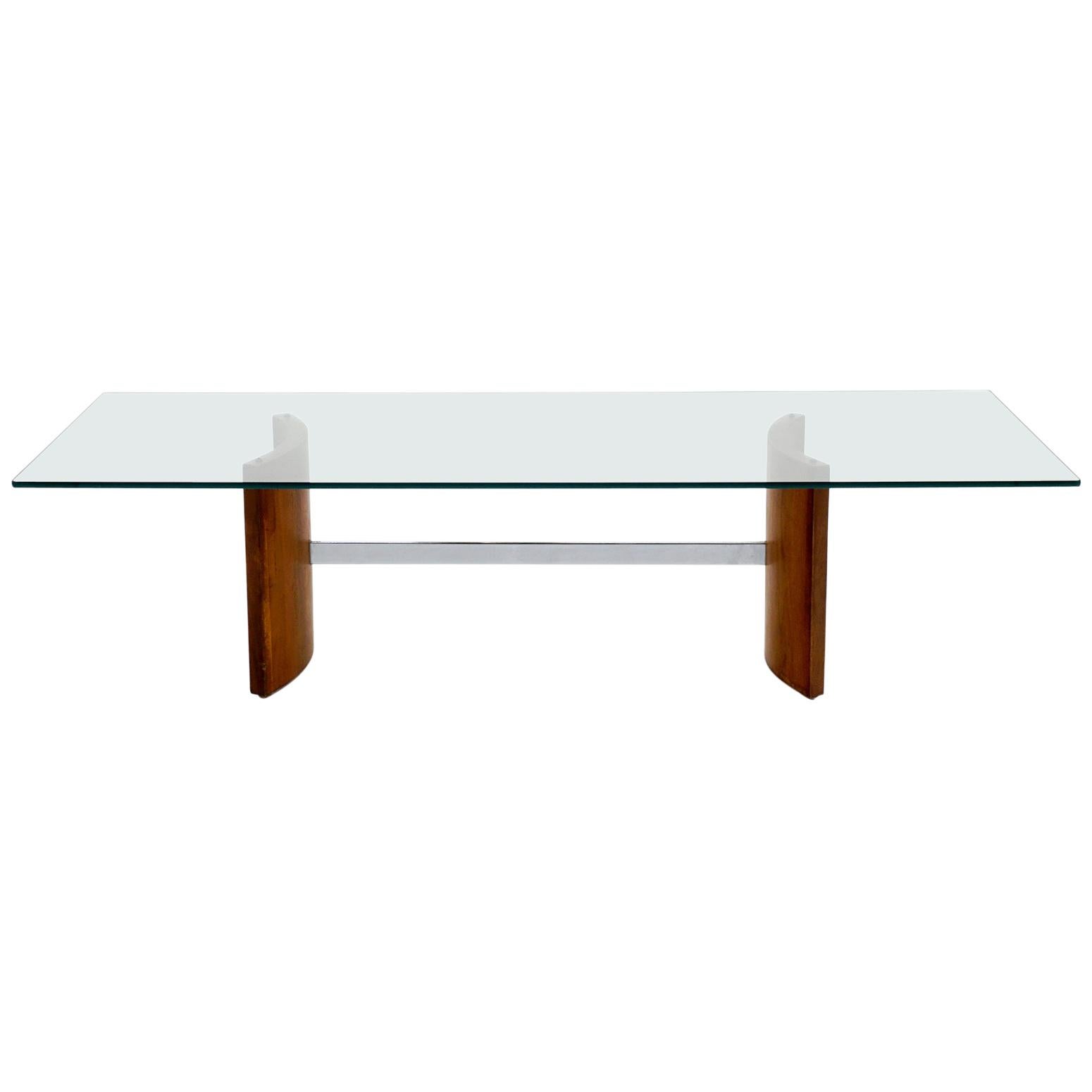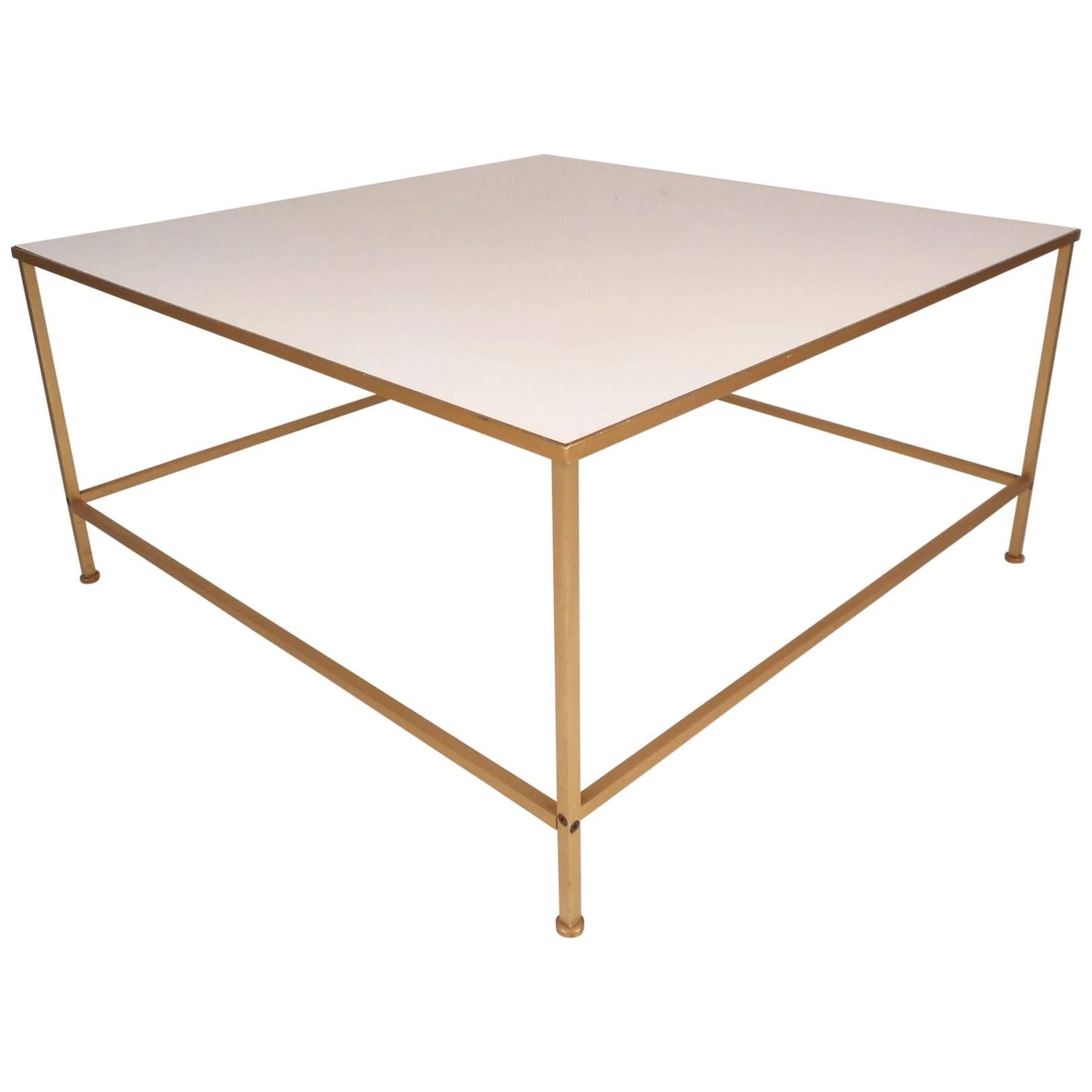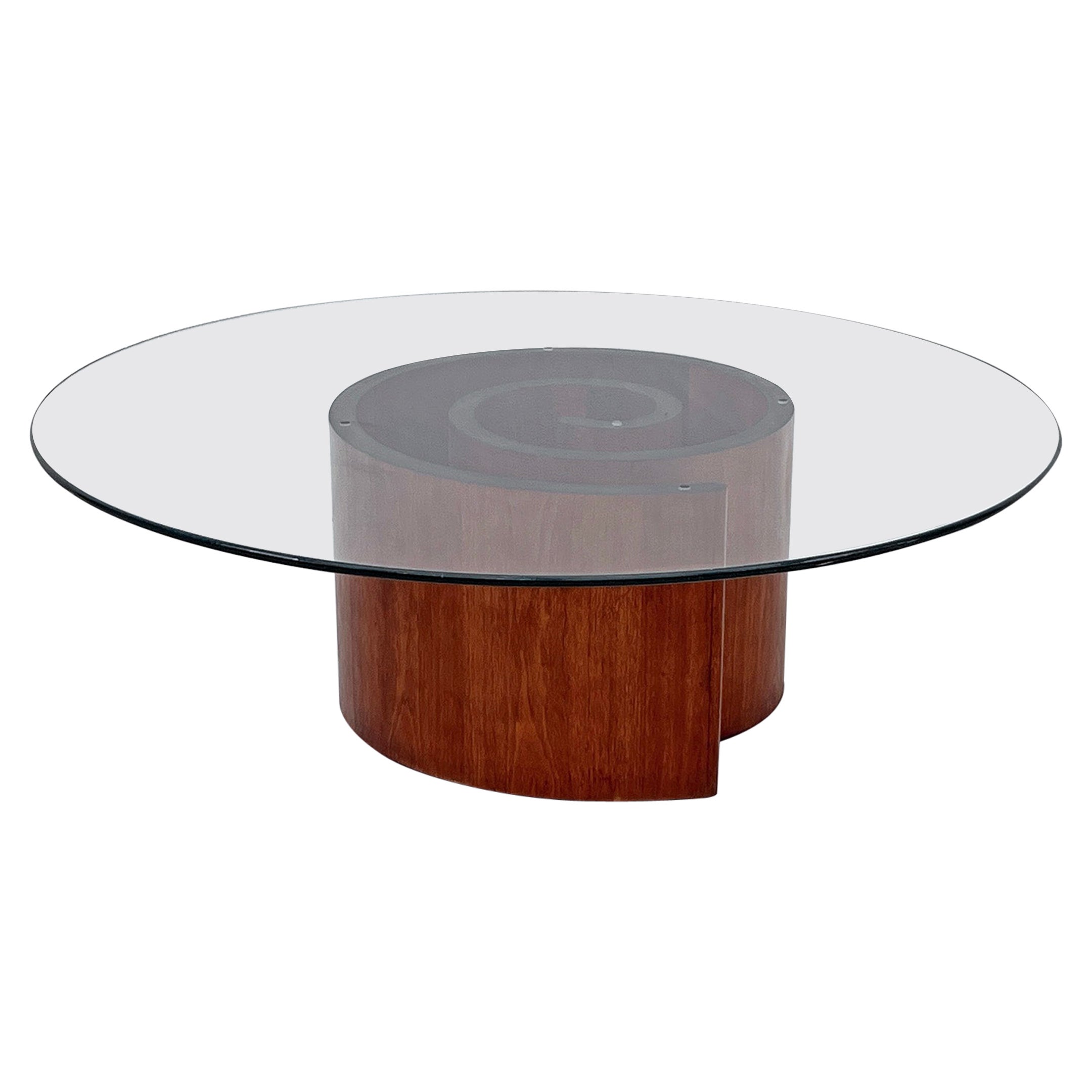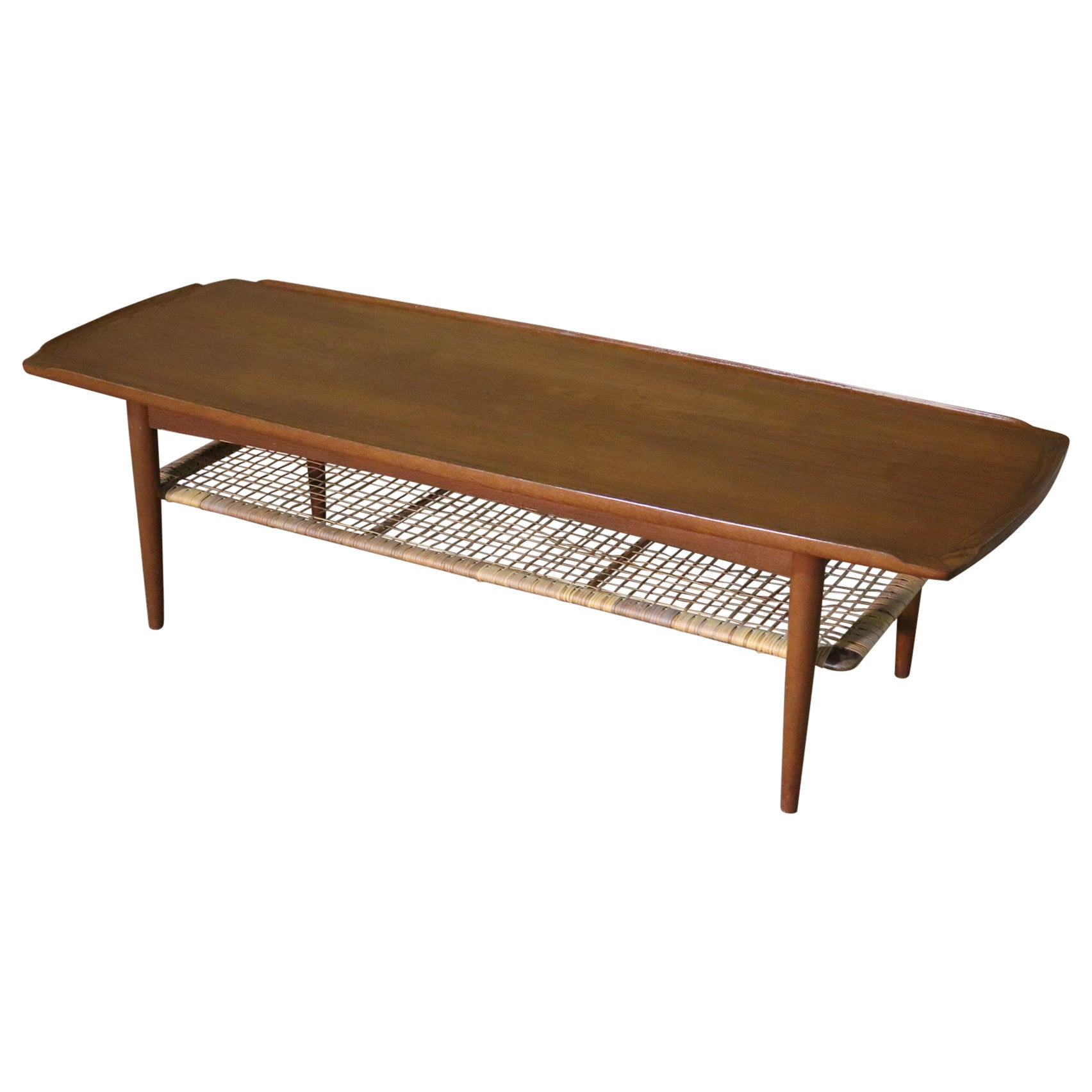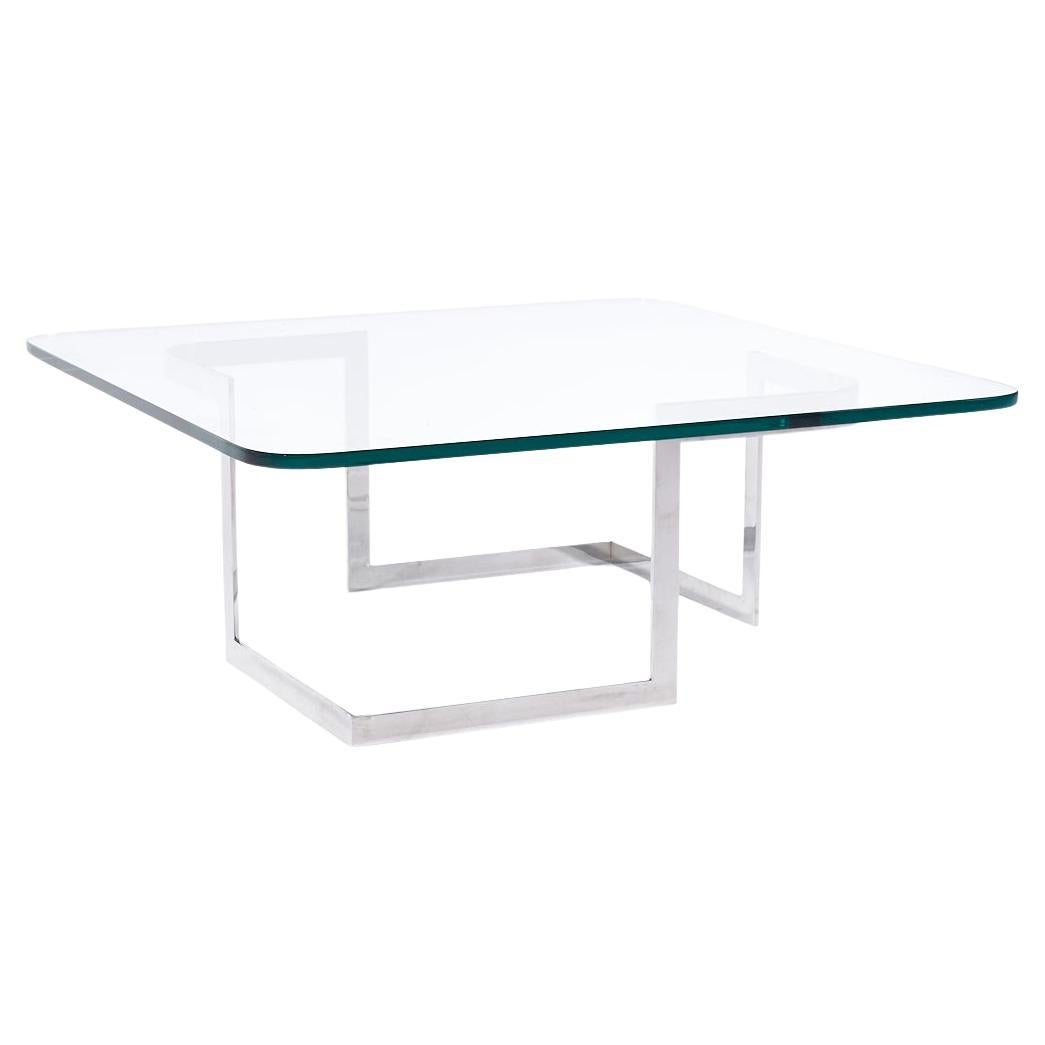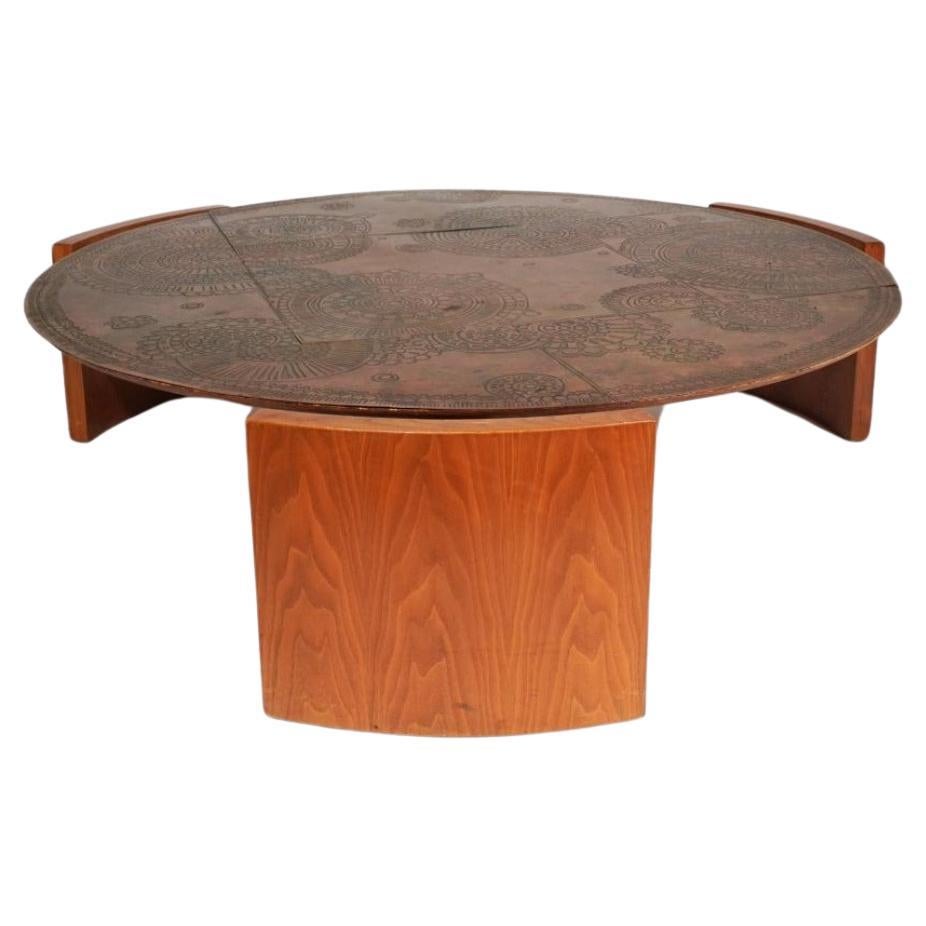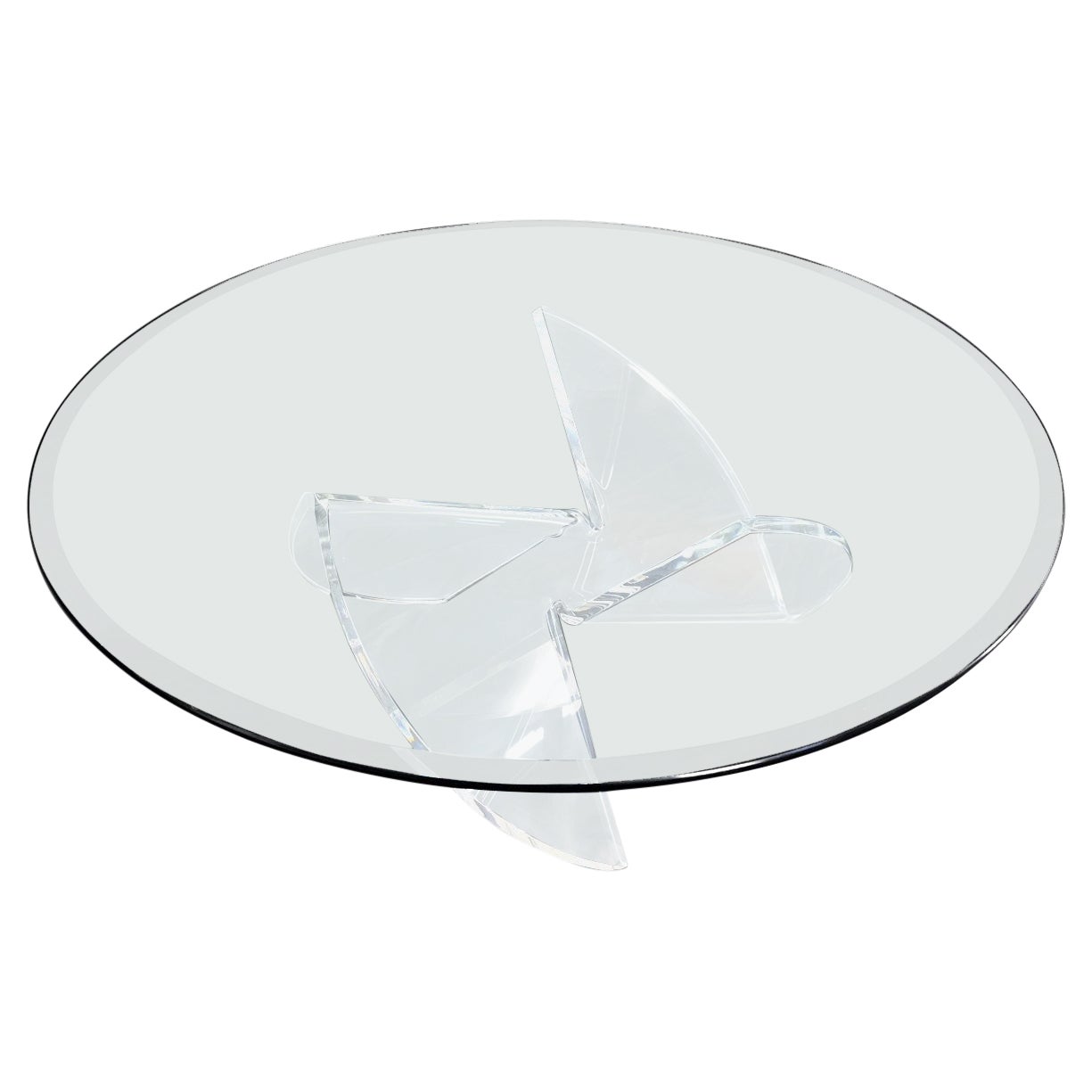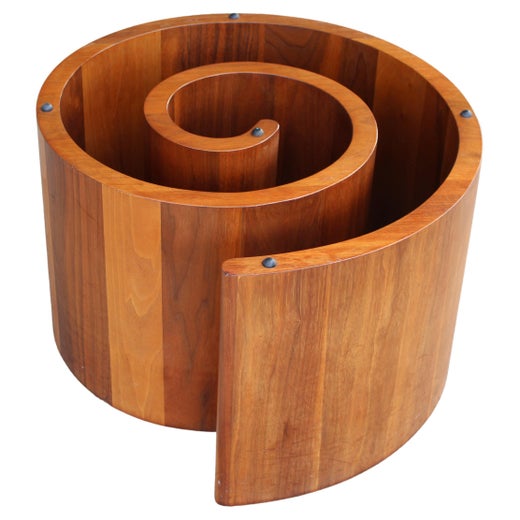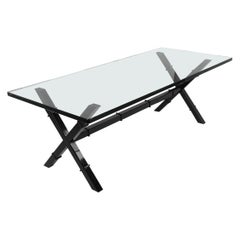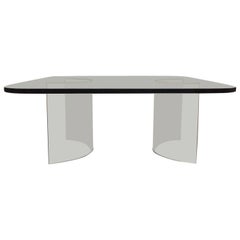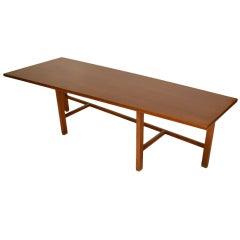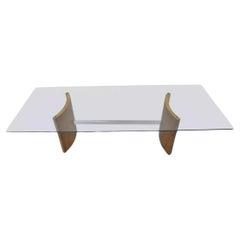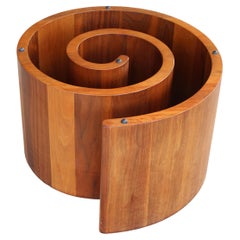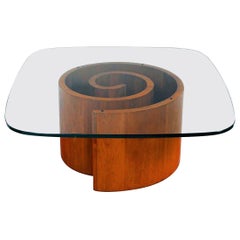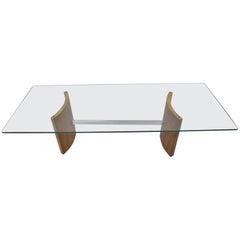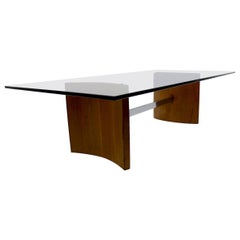
Kagan Propeller Glass Top Coffee Table for Selig
View Similar Items
Kagan Propeller Glass Top Coffee Table for Selig
About the Item
- Creator:Selig (Manufacturer),Vladimir Kagan (Designer)
- Dimensions:Height: 15 in (38.1 cm)Width: 54 in (137.16 cm)Depth: 28 in (71.12 cm)
- Style:Mid-Century Modern (Of the Period)
- Materials and Techniques:
- Place of Origin:
- Period:
- Date of Manufacture:1960s
- Condition:Wear consistent with age and use. Very good condition, shows light cosmetic wear including slight veneer loss to wood base.
- Seller Location:New York, NY
- Reference Number:1stDibs: LU978714042812
Vladimir Kagan
The pioneers of modern furniture design in America in the mid-20th century all had their moments of flamboyance: Charles and Ray Eames produced the startling, biomorphic La Chaise; George Nelson’s firm created the Marshmallow sofa; Edward Wormley had his decadent Listen to Me chaise. But no designer of the day steadily offered works with more verve and dynamism than Vladimir Kagan. While others, it seems, designed with suburban households in mind, Kagan aimed to suit the tastes of young, sophisticated city-dwellers. With signature designs that feature sleekly curved frames and others that have dramatic out-thrust legs, Kagan made furniture sexy.
Kagan’s father was a Russian master cabinetmaker who took his family first to Germany (where Vladimir was born) and then to New York in 1938. After studying architecture at Columbia University, Kagan opened a design firm at age 22 and immediately made a splash with his long, low and sinuous Serpentine sofa. Furniture lines such as the Tri-symmetric group of glass-topped, three-legged tables and the vivacious Contours chairs soon followed.
Kagan’s choices of form and materials evolved through subsequent decades, embracing lucite, aluminum and burl-wood veneers. By the late 1960s, Kagan was designing austere, asymmetrical cabinets and his Omnibus group of modular sofas and chairs. For all his aesthetic élan, Kagan said that throughout his career, his touchstone was comfort. “A lot of modern furniture was not comfortable. And so comfort is: form follows function. The function was to make it comfortable,” he once commented. “I created what I called vessels for the human body.”
A diverse group of bodies have made themselves at home with Kagan designs. Among the famous names who commissioned and collected his designs are Marilyn Monroe, Gary Cooper, Andy Warhol, David Lynch, Angelina Jolie and Brad Pitt, and firms such as Gucci and Giorgio Armani. His work is in numerous museum collections, including those of the Victoria & Albert and the Metropolitan Museum of Art.
Because of its idiosyncrasy, Kagan’s work did not lend itself to mass-production. Kagan never signed on with any of the major furniture-making corporations, and examples of his designs are relatively rare. As you will see from the offerings on 1stDibs, even decades after their conception, Kagan pieces still command the eye, with their freshness, energy, sensuality and wit.
Selig
As an importer and producer, the Selig furniture company helped popularize timeless and elegant postwar designs in the United States.
Selig created Danish-inspired chairs, sofas and other furnishings for the home that were cutting-edge, contemporary and airy. The brand was also among the first to introduce Scandinavian and European modern styles to Americans in the 1950s and 60s. The company imported and manufactured furniture known for its extraordinary design and style using high-quality, enduring and seductive materials.
Selig was founded in 1931 by Mandell Selig and Samuel Wexler. The pair started the business during the challenging economic times of the Great Depression prior to World War II. By the 1960s, under the leadership of Wexler's son, Robert, Selig peaked with manufacturing factories in five American cities.
Selig’s importing business had a meaningful impact on Italian furniture manufacturers. Wexler, the junior, had a hand in advancing and growing the manufacturing sector of the country’s Udine region. Due to this contribution, the Italian government saw fit to knight Robert Wexler with the title of “Cavaliere.”
After nearly four decades of influencing seating and lounging preferences in the United States with sophisticated mid-century modern and Scandinavian modern furniture — including its own chrome rocking chairs and leather club chairs — Selig sold to Simmons, the mattress company, in 1970, thus dissolving. Much of what they produced and imported is still available despite no longer being manufactured, and many collectors seek original Selig furniture.
On 1stDibs, find an array of vintage Selig furniture that includes lounge chairs, armchairs, tables and more.
More From This Seller
View AllMid-20th Century American Mid-Century Modern Coffee and Cocktail Tables
Metal
Vintage 1960s Italian Mid-Century Modern Coffee and Cocktail Tables
Glass
Vintage 1950s American Mid-Century Modern Coffee and Cocktail Tables
Wood
Vintage 1970s American Mid-Century Modern Coffee and Cocktail Tables
Chrome
Late 20th Century American Hollywood Regency Coffee and Cocktail Tables
Bamboo, Glass
Vintage 1960s American Mid-Century Modern Coffee and Cocktail Tables
Terrazzo, Wood
You May Also Like
Mid-20th Century Unknown Mid-Century Modern Coffee and Cocktail Tables
Chrome
Vintage 1960s American Mid-Century Modern Coffee and Cocktail Tables
Glass, Wood, Walnut
Mid-20th Century American Mid-Century Modern Coffee and Cocktail Tables
Glass, Walnut
Vintage 1960s Mid-Century Modern Coffee and Cocktail Tables
Chrome
Vintage 1960s American Mid-Century Modern Coffee and Cocktail Tables
Chrome
Vintage 1960s American Mid-Century Modern Coffee and Cocktail Tables
Brass
